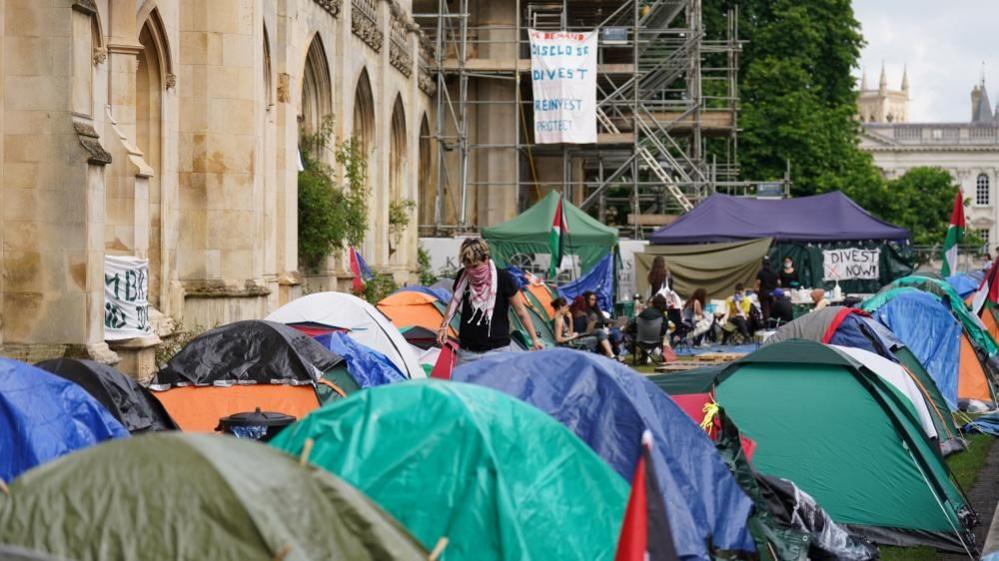Judge gives reasons for banning pro-Palestinian protests
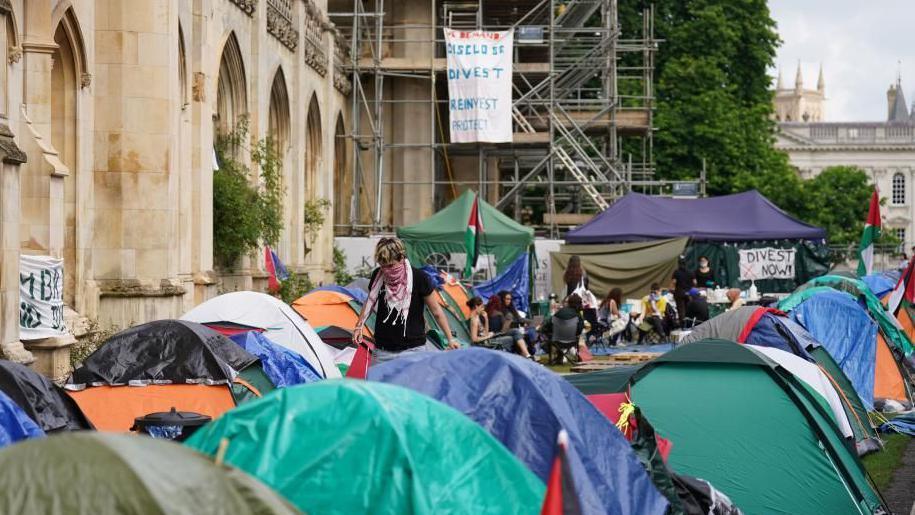
- Published
A High Court judge has explained why he made an order blocking pro-Palestinian protests on parts of Cambridge University's campus.
Mr Justice Butcher heard arguments in July after lawyers representing the university raised concerns about protesters linked to a group called Cambridge for Palestine causing disruption.
The judge, who considered the evidence at a hearing in London, said protesters had promised they would "not stop".
In his written ruling, he said the background to the university's application for an injunction was a "campaign of action by persons, largely unknown" in relation to the Palestinian-Israeli conflict.
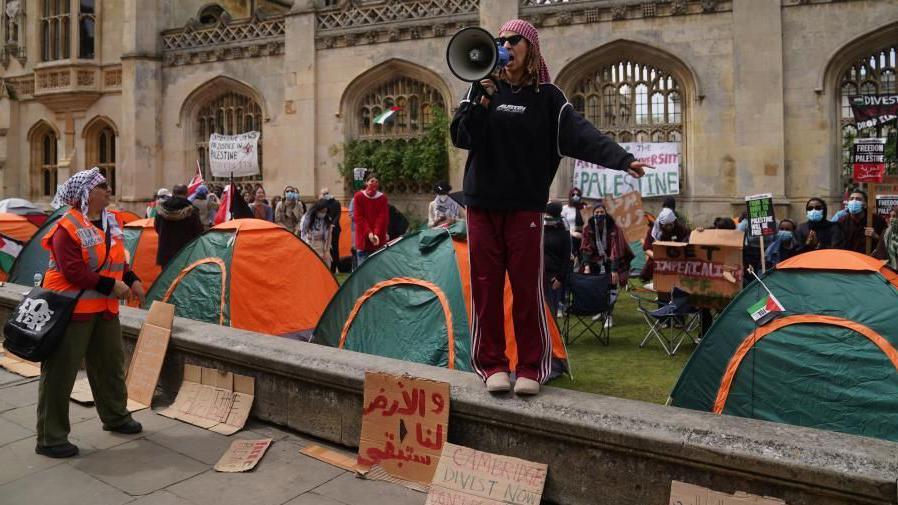
Mr Justice Butcher said he had considered free speech rights and the law relating to trespass
"This campaign is spearheaded by a well-organised group of individuals with strong and committed views on the Palestine-Israel conflict, who are affiliated with the group known as Cambridge for Palestine (or C4P)," he said.
"The Cambridge for Palestine website states that it is 'a student-led coalition standing against Cambridge University's complicity in apartheid and genocide'."
He said the campaign had involved protesters "entering, occupying and remaining" on university land.
Tents had been erected and people's access had been blocked, the judge said.
He said he accepted that "views giving rise to the protests" related to "very important issues".
The judge added that Cambridge for Palestine had said protesters would "be back" and would "not stop".
He said he was satisfied that the risk of future "torts" – civil wrongs – was "real and imminent".
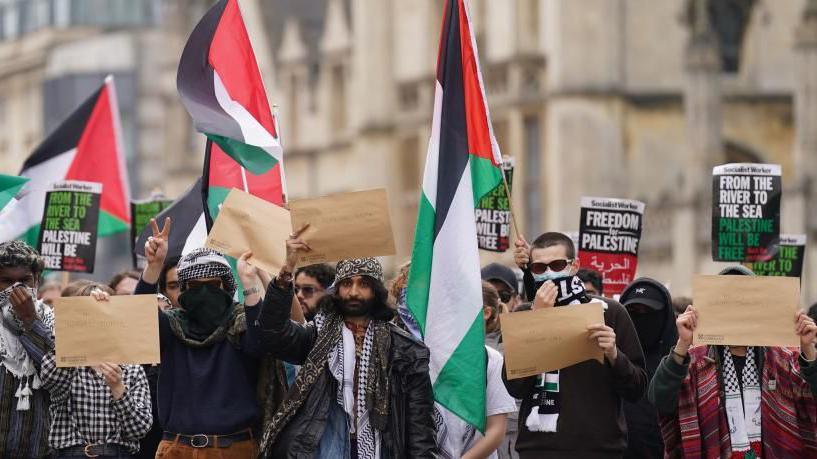
The judge said the "views giving rise to the protests" related to "very important issues"
Mr Justice Butcher said he had considered whether relying on police powers would be as effective an approach as a civil court claim for the university.
He said he had examined police powers under anti-social behaviour and public order legislation.
The judge said he was satisfied that none of those police powers constituted a measure which would be "nearly as effective" at securing the university's "legitimate aims of protecting" its rights to land.
He also said he had balanced the rights to free speech and freedom of assembly against laws relating to trespass.
The judge said rights to free speech and assembly did not give protesters an "unqualified right" to choose where and how to protest.
And he said his ruling did not prevent protests in other parts of Cambridge.
Get in touch
Do you have a story suggestion for Cambridgeshire?
Follow Cambridgeshire news on BBC Sounds, Facebook, external, Instagram, external and X, external.
- Published24 July
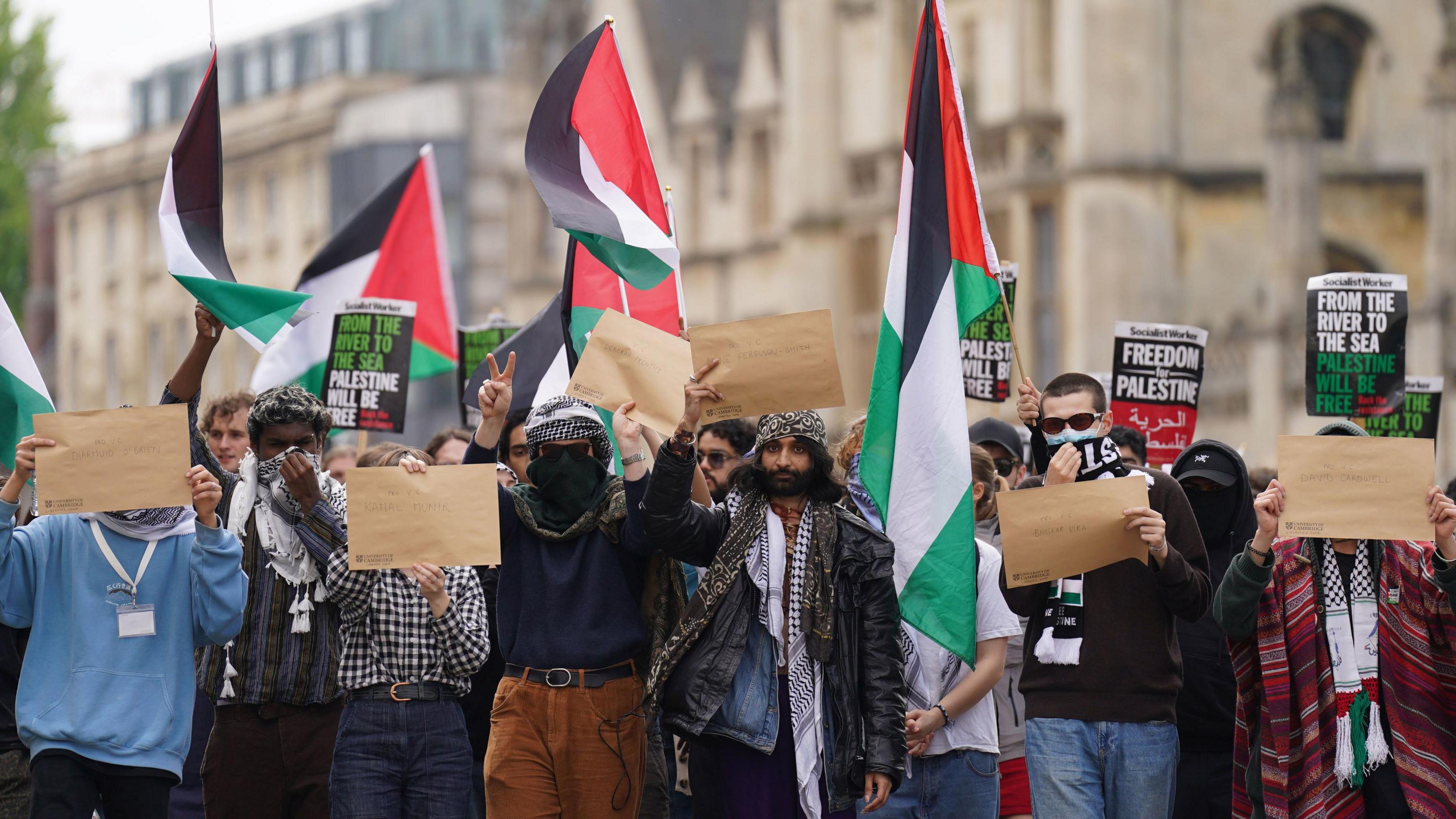
- Published24 June
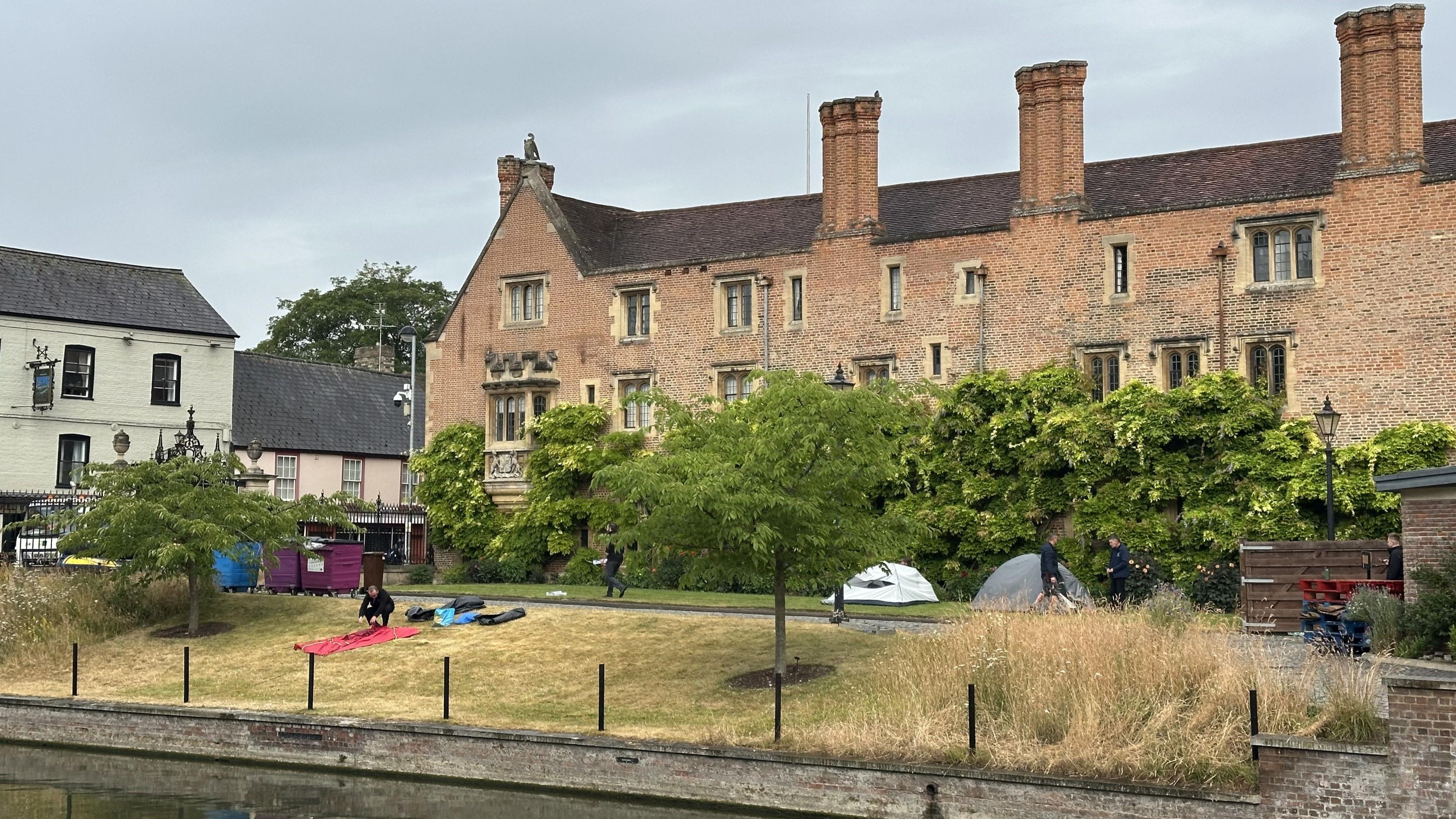
- Published27 February
